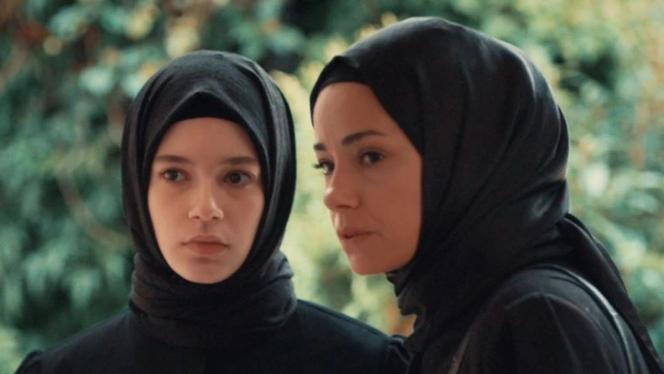Turkish TV series is exposing deep societal divides
LETTER FROM ISTANBUL

All it took was one episode to cause a stir. For the past two weeks, the new TV series Kizil Goncalar (“Red Buttons”) has made the front pages in Turkey, with the conservative pro-government media vacillating between outraged dignity and sharp intransigence. Conversely, the opposition evoked freedom of speech and denounced a cabal from a bygone era.
Two episodes have just been banned by RTÜK, the Turkish Broadcasting Authority; the broadcaster Fox TV has been heavily fined; and several buildings rented by the production company have been closed to the series’ film crews. It would be an understatement to say that Kizil Goncalar has touched a raw nerve in Turkish society. It highlights the country’s highly charged atmosphere, which is locked in an obsessive and steadfast “moral war” between two lifestyles – one secular, the other Islamic.
Set in modern-day Istanbul, Kizil Goncalar is the story of the meeting between a woman and a man from completely different backgrounds. Performed by two of Turkey’s most popular actors, the series hinges on the contrast between the attractive Özgü Namal, who plays Meryem, a pious and tormented mother, and Özcan Deniz, quite convincing as an uncompromising Kemalist psychiatrist, albeit in an almost caricatural sort of way. Meryem is a member of an important Islamic religious brotherhood, a tariqat. Married as a teenager and wearing a black headcovering, she thought she had made religion her relief. He, on the other hand, is going through a difficult marriage and looking after a young patient, another member of the sect who is charismatic but has suicidal tendencies.
A melodramatic, often syrupy and even “arabesque” fable, as the Turks say, about the nature of the contracts binding couples together, somewhere between fantasy and reality, Kizil Goncalar can be seen as a wake-up call to Turkey’s leaders and their great virtues. In a country where President Recep Tayyip Erdogan and his AKP party have in recent years promoted an increasingly monolithic image of the country and its relationship with Islam, the series shines a harsh light on these mystical and secretive religious communities. Despite their expected separation from secular power, they are staunch supporters of the current government.
‘Hostile’ toward Islam
Several scenes have led to considerable discussion and commentary on social media. There’s the scene when Meryem’s young daughter blurts out in front of a very secular physical science teacher that neither the military regime of the 1980s-1990s and its ban on the veil nor the clerics have improved women’s status in the country. The one where the husband prevents a bus employee from giving Meryem a bottle of water because no one should touch or even graze a married woman. Above all, there’s the “börek” scene, as it’s now known, in which the same Meryem clashes with the owner of the bakery where she works. The man, himself a member of the brotherhood, forces his workers to cut dough with cheap oil, even though the bakery praises the quality of the butter it uses.
You have 47.88% of this article left to read. The rest is for subscribers only.



